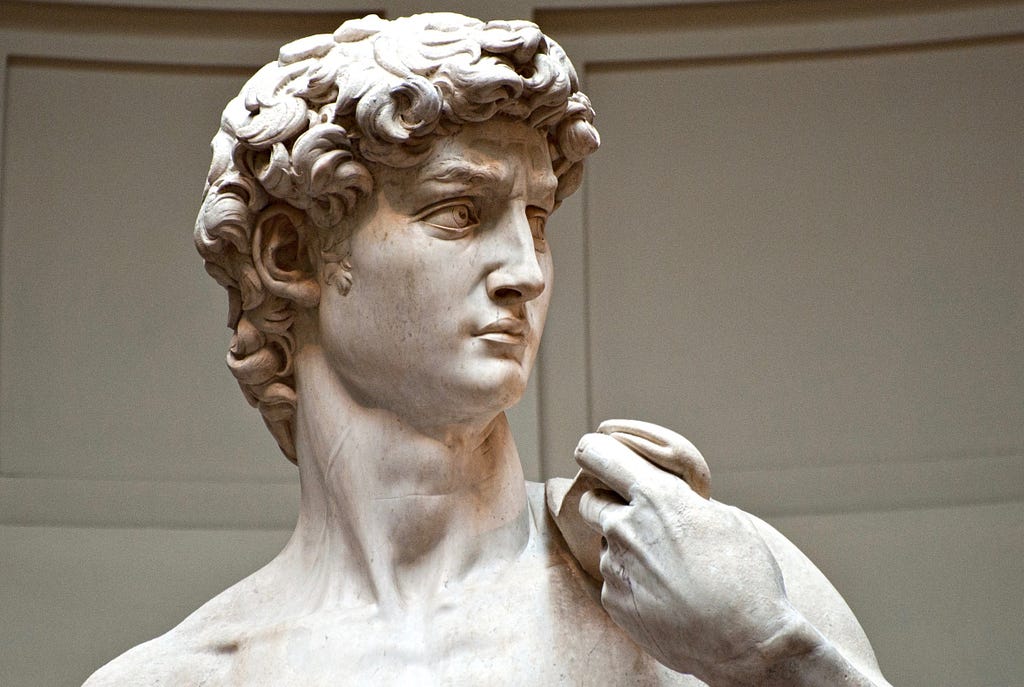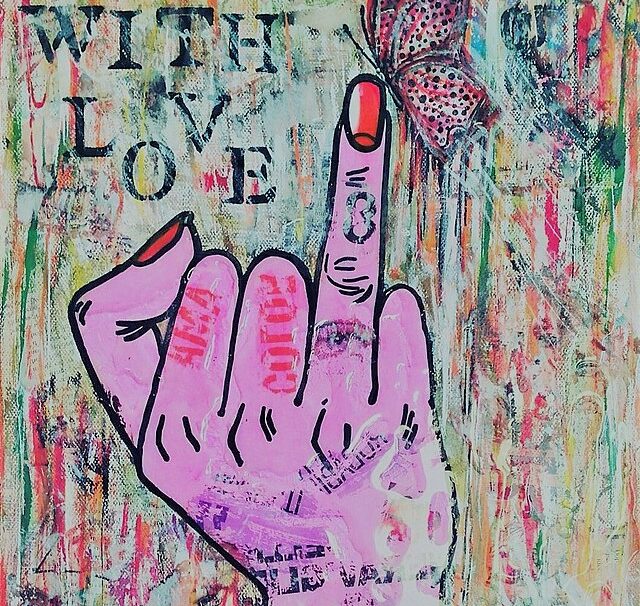Craft
A Good Man is Hard to Write: In Defense of the Heroic Male Ideal

by Liesl Schillinger

Name the last time you read a literary novel about an exceptional, gifted, attractive man who loves his life and work, loves women, loves sex with women in his own age range, falls in love with one particular woman, marries her and remains (essentially) faithful to her, despite extreme tests. Name one male protagonist in recent fiction who, however complicated he may be, assigns himself an audacious goal and achieves it; a man who is admirable, yet also fairly conventional in his desires and dreams.
Until the last few years, I would have been hard-pressed to come up with a single example of such a character, later than Odysseus or, to be fair, David Copperfield (though Dumb Dora was no Penelope). Mr. Rochester (Jane Eyre) and Darcy (Pride and Prejudice) also hold great appeal, but are, effectively, unemployed, which (for me) compromises their status as paragons. I love contemporary (and older) fiction, and am compelled by its characters — male, female and other; heterosexual, homosexual, bisexual, etc.; cowardly or brave; hale or infirm — and their knotty problems. The work of literary fiction, on the whole, is the exploration of difficult, atypical lives and trying times. I applaud that endeavor, and am fascinated by its provocations and revelations. And yet…a decade ago, when a close friend of mine was going through a wrenching period in his personal life, and asked me if, as a critic, I could recommend a recent novel in which the male protagonist was not unhappy, was not drug-addicted or selfish, was not cynical, was not negative, did not screw up his relationships and let people down, was not on some level a bastard — who did not, in short, fail as a human, I was startled to realize that I could not think of one.
And I wondered: is there no place in the ambitious writerly imagination anymore for what used to be called the heroic male ideal? Dickens, in the opening line of his (largely autobiographical) novel David Copperfield, wrote, “Whether I shall turn out to be the hero of my own life, or whether that station will be held by anybody else, these pages must show.” Was that premise — that a man would set out intentionally to be heroic — now “out”? Did it strike modern sensibilities as embarrassing, cliché, conceited or retrograde? If so, what then should a man set out to be? Was no one left but Luke Skywalker to uphold a pattern of male excellence? Perhaps so, I thought. And yet, like many of us, I grew up reading works which have lived for centuries (not only Homer and Dickens, but Trollope, Stendhal, Tolstoy — even Louisa May Alcott), which made me think that this goal must be recognized, if only subconsciously, as worthy. The blueprint existed, but had been discarded, rejected, as out of date, uninteresting, or perhaps childish — something for YA and bodice rippers and airport novels, not for serious readers.
And so, it was with surprise and elation that I read a novel this fall called Fates and Furies, by Lauren Groff, which set out unapologetically to present a male protagonist in the heroic tradition — a charismatic, strapping, loving and beloved, prolific playwright named Lotto, who is devoted to his wife, Mathilde. (She turns out to be named Aurélie, actually, and constitutes a more familiar, tricksy, postmodern construction of attitude and artifice). But reading the author’s portrayal of Lotto in the book’s first half (which presents Lotto and Mathilde’s story primarily from his perspective) was for me like taking great gulps of oxygenated air, reviving the fainting corpse of romance between men and women.
Before reading Fates and Furies, the most moving and convincing romances I had read in decades had concerned either love between men — André Aciman’s breathtaking, passionate “Call Me By Your Name” and Annie Proulx’s heartbreaking short story “Brokeback Mountain;” or love between a woman and a weak-willed scoundrel (for instance, “One Day” by David Nicholls) or a woman’s platonic affair with her doomed, paraplegic boss (“Me Before You,” by Jojo Moyes). But in Lauren Groff’s novel, I discovered a vital protagonist who could give hope to cisgender women readers; that is, a male character who could make such readers believe it was not futile and senseless to fall in love with a heterosexual man.
As I pondered the dearth of such characters in ambitious contemporary fiction, it occurred to me that I had overlooked a striking example of the heroic everyman in a highly acclaimed recent body of work by another author. Karl Ove Knausgaard’s deeply detailed, introspective six-volume saga My Struggle has been lauded and examined ad infinitum by legions of critics (including me) who are astonished by his unconcealed emotionalism and his preternatural recall of the particulars of his past. But if you consider those books together, as one unified project, you see that they relay the story of a man who doggedly overcame obstacles to achieve creative and domestic fulfillment: a man who, to paraphrase Dickens, became the hero of his own life. Knausgaard, who is notoriously self-deprecating, likely would dispute that assessment. Still, the popularity of Fates and Furies and My Struggle proves to me that the power of this archetype endures.
There is room in the reading world for fiction about every kind of person on earth, whatever their sexual or gender identity or preference; whatever their deficit or surfeit of ability, whatever their weakness or strength of personality; whatever their luck, good or ill. My literary appetites are catholic and insatiable, and I require neither conventional plot structure and subjects nor happy endings (nor does Fates and Furies supply one, it is not a wish-fulfilment novel).
But when I remember my troubled male friend, who asked me not so long ago, during a dark moment, to recommend a novel about a man who succeeded, I am so glad that I can now give him a title. (Even now, I am not sure he should risk the Knausgaard).
A good man is an extraordinary thing; but more of them exist among us than literature likes to show.









